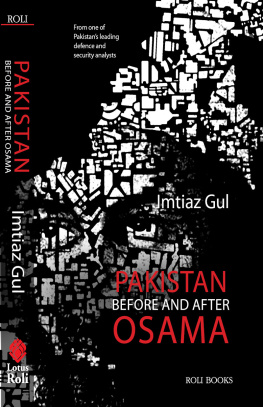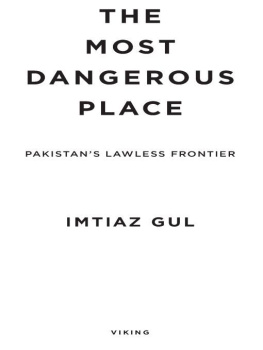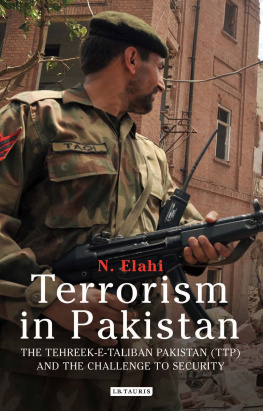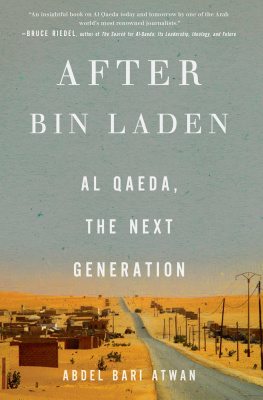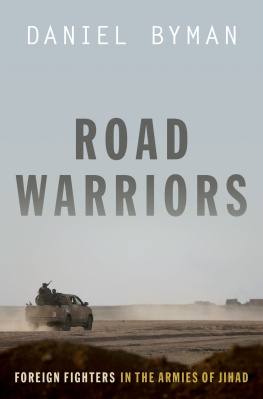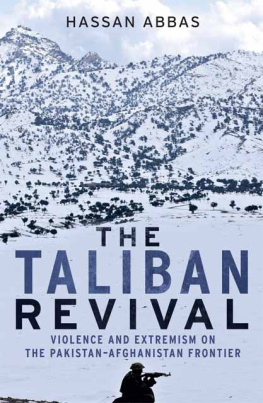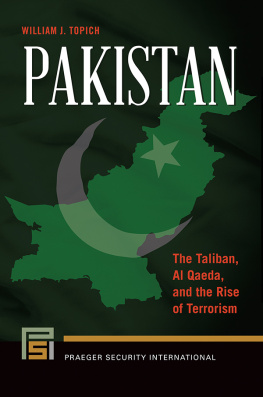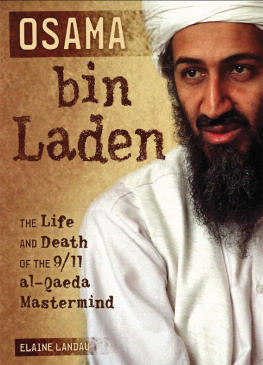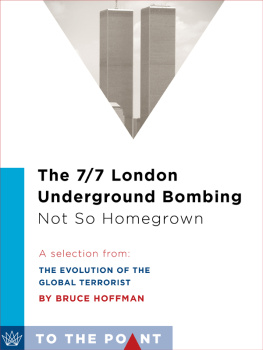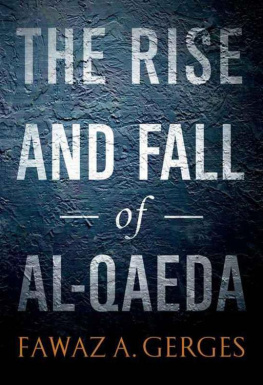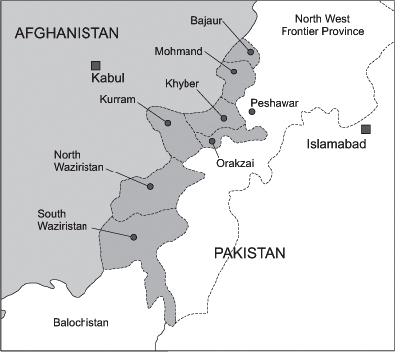Penguin Books is part of the Penguin Random House group of companies whose addresses can be found at global.penguinrandomhouse.com.
This digital edition published in 2016.
This book is sold subject to the condition that it shall not, by way of trade or otherwise, be lent, resold, hired out, or otherwise circulated without the publishers prior consent in any form of binding or cover other than that in which it is published and without a similar condition including this condition being imposed on the subsequent purchaser.
Prologue
Tahir Jan is dead
In the early hours of 16 March 2004 this news reached the village of Landi Dok in Kaloosha district. Kaloosha, some ten kilometres west of Wana in South Waziristan, is one of Pakistans tribal agencies. The men of the Zillikhel tribe were outraged. They poured out of their homes and by the afternoon had surrounded the few hundred South Waziristan Scouts who were laying siege to the house of Noorul Islamone of five wanted Al Qaeda backers. The Scouts believed that Tahir Yuldashev or Tahir Jan as he was known locally, the charismatic leader of the Islamic Movement of Uzbekistan (IMU), was hiding there along with at least twenty-five of his followers.
This area was under the control of five Islamist militantsNek Mohammad, Noorul Islam, Mohammad Sharif, Maulvi Abbas and Maulvi Abdul Aziz. The Scouts suspected that these men were allowing foreign terrorists from the Afghan Taliban, as well as Arab, Chechen and Uzbek militants, to shelter in the region. The IMU leader and his army, however, reacted to the Scouts call for surrender by unleashing a massive barrage of gunfire on the Scouts and their commander, Colonel Khalid Usman Khattak.
Over a month later locals in Wana and the nearby village of Sheen Warsak told me that rumours of Tahirs death provoked a strong local reaction and resulted in armed tribesmen surrounding the Scouts as Tahir Jan was a well-known figure in the region, held in high esteem for his chivalry and love for Islam.
Though wounded, Tahir Jan managed to escape in the ensuing frenzy, but what followed was bloody and messy. Crossfire brought down at least eighty Scouts and other soldiers; the army claims it lost forty-six people. Scores of vehicles belonging to the Scouts and to the army were rocketed and torched by the angry tribesmen. Even today, burnt and charred vehicles lie on the road between Azam Warsak and Kaloosha and the walls of the neighbouring apple orchards are riddled with bullet marks. When the army regrouped and moved back in full force, it bulldozed about eighty houses, overrunning decades-old irrigation channels called karez, levelled wells and tube-wells, arrested over 200 locals and, according to one of them, killed scores of people as well. Dozens of Scouts who had been hiding in mosques and houses were rescued by soldiers from Wana, disguised in civilian clothes. Even Colonel Khattak, the Scouts commander, could only come out of a shelter alive after a few tribal maliks (leaders) and reporters who belonged to the local ethnic group and had relatives in the area managed to escort him to safety.
This series of bloody and dramatic events left its trail of grievances and allegations. During the extended operation in the third week of March 2004, locals alleged, the army and the Scouts plundered not only the demolished houses but also those hastily evacuated as their owners feared retribution. Several families have lost jewellery, antique utensils and what not, said Abdullah Khan Wazir, a resident of Kaloosha. He also questioned claims by Major General Shaukat Sultan, head of the Pakistan armys public relations department, Inter-Services Public Relations (ISPR), that several foreignersnon-Pakistani nationalshad been arrested during the operation. [Since] they did not spare even local young students, Abdullah Wazir argued, if they had killed or captured a foreigner, why didnt they parade him? A teacher from a local private school described the fate of one of his studentsa boy of ten. They shot him in the head, breaking the skull in two while looking for Al Qaeda people; they even humiliated our women, he said, his voice shaking. He described how on 18 April dozens of families from the Kaloosha and Azam Warsak area evacuated ahead of the 20 April deadline that the army had given for the surrender of the five wanted menNek Mohammad, Mohammad Sharif, Noorul Islam, Maulvi Abdul Aziz and Maulvi Abbas.
The first four men belong to the Yargulkhel clan of the Zillikhel sub-tribe known for their fierce independence. Mohammad Sharif, also known as Haji Sharif, is the brother of Noorul Islam. The fifth man, Maulvi Abbas, reportedly taking care of his ailing father somewhere in the North West Frontier Province, is from the Kakakhel sub-tribe. Nek Mohammad was killed in a missile fired from a drone in June that year, while most of the others are hiding in North Waziristan.
Those were really terrible days, recalled Noor Mohammad, the elder brother of my friend Allah Noor (Noor is a common name in this areait means enlightenment or spirituality). It was April and we were having dinner in the courtyard of their fortress-like house and he described how foreigners, mostly Arabs and Uzbeks, were frantically moving from one shelter to another to escape arrest. As he spoke, we heard several thuds, constant reminders of artillery fire coming from inside the Military Camp near the airfield. Allah Noor explained that this had become routine ever since March. He recalled a chilling encounter which happened during the March operation. A tall stranger, clearly an Arab, knocked at their door, in the middle of the night. It must have been about two o clock when we heard the knock, he said. Alarmed, his brothers and he picked up their guns, drew near the door and asked who it was.
A Muslim brother, a friend of your brother Noor Ahmed, the stranger replied in broken Pashto. I need to spend the night here.
The Noor family, following a brief consultation, let the stranger in, offered him some food and a bed, without asking any questions. Everybody went to sleep but when they got up the stranger was gone.
We didnt ask him what he was up to because it is not in our tradition, Noor Mohammad said.
Two days later, the stranger returned in the middle of the night, again looking for shelter.
He got shelter. I was not told whether the guest paid for the shelter or not.
The Kaloosha Operation: The Catalyst for FATAs Al Qaedaization
The Kaloosha operation, undertaken jointly by the Scouts and the army to flush out foreign militants from the area, concentrated on a fifty-square-kilometre area near Wana, South Waziristan around the villages of Sheen Warsak, Daza Gundai, Kaloosha, Ghwakha and Kari Kot. The operation was a spectacular failure as local and foreign militants ambushed the troops, inflicting heavy losses and taking several civilian officials and army men hostage.


